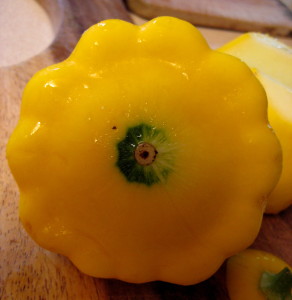Habits are precious stones that reflect the jewels of our unknown selves. Like moths to a flame we are drawn to the daily ritual enactment of our precious habits.

– Photo by Jan Ketchel
The unconscious draws us with compulsive fervor to realize its contents as it reflects itself upon the objects of this world. Specific objects glow with the mana of transcendence, of wholeness, of completion. Whether we are directed to obtain or avoid these magical objects is irrelevant, our daily lives are consumed with and defined by the mystical dance with these reflections of god anyway.
This habitual state of possession easily defies reason. As St. Paul abundantly made clear: that which I would, I do not; that which I would not, that I do. Had we the birthright of the East, that this material world is but maya, perhaps we wouldn’t find ourselves so easily entrapped by the spell of projective illusion. But, as Westerners, the solid world is our playing field, the waking dream of the unconscious and habits are our paths of heart.
At the heart of habit is that which we do not know about ourselves but must discover in the gold rush of our daily lives. This knowing transcends reason, which is simply inadequate at grasping our greater wholeness. How reasonable for instance is passionate love? And, in all honesty, in one form or another, is not the habitual seeking of passionate love at the heart of much of life?
The pot at the end of the rainbow of habit is as illusive as the gold it reflects. Inevitably, even the successful scoring of the habit, the magical substance or pulsating being we obtain, is but a fleeting glimmer of the true gold we seek. And so, each day we awaken with renewed vigor and resolve, reset to go off once again prospecting for that gold.
The Buddhists call this repetitive seeking avidya. It is at the root of all suffering, and yet its repetition leads eventually to knowledge, as repetition itself leads to burnout; the flame of desire simply exhausts itself in completion. The habit ends as the jewel of self-knowledge is realized: the object of my desire has simply lost its shine, the compulsion disappears; I am freed to move in a new direction. How deeply I grow from this new possibility, how daring I will be to change my life is still a function of consciousness and conscience, but it’s no longer governed by compulsion; the path for growth and change is cleared.
It could be argued, a la the Christian viewpoint, that sacrifice is a more efficient methodology to bottle up and transform the habit, but you cannot throw your habit into the fire of sacrifice if you are truly not done with it. One need only examine the notion of turning one’s cheek or immediately embracing forgiveness, which frequently only generates a shadow of lifelong resentment. If the fire of anger is not allowed its full course it will smolder and flame up anew. You are not ready for sacrifice if you have not fully mined your habit. In such a case, your habit still holds meaning for you.

– Photo by Jan Ketchel
In repetition, I give myself full liberty to reenact the experiment to prove the hypothesis that my unconscious has proposed to me: that thing, that being, obtained or avoided, is the key to the kingdom. Having obtained that key over and over again, having lived it fully, having examined it in totality, finally reveals its treasure. That treasure comes in many forms.
Sometimes it reveals the obsessive power of a mighty defense that promises to protect me from death. Sometimes the trail it leads me on forces me to discover a precious unknown part of myself. Sometimes it is the very thing that breaks my narcissistic shell and reveals the world beyond myself and my place in it. Sometimes it reveals the caged, domesticated animal of my physical self seeking the redemption of freely living its instinctual life. Frequently it is the trail of recapitulation itself, the journey to recover and discover who and all that I really am, what jewel I’ve come here to obtain.
Habits can be life threatening, but no journey of heart is without its dangers. And no one can truly be rescued from a habit, for habit is the habitat of humanity. We may be protected from our destructive habits, and often we must be, but until we discover the real jewel that lurks behind the habits we are drawn to our lives will continue to wrap around the heart of the habit.
Habits, gotta love ’em!
Chuck


